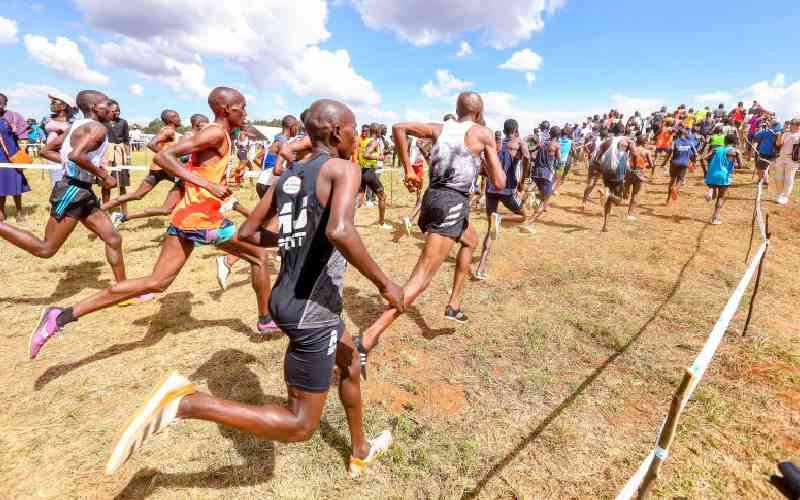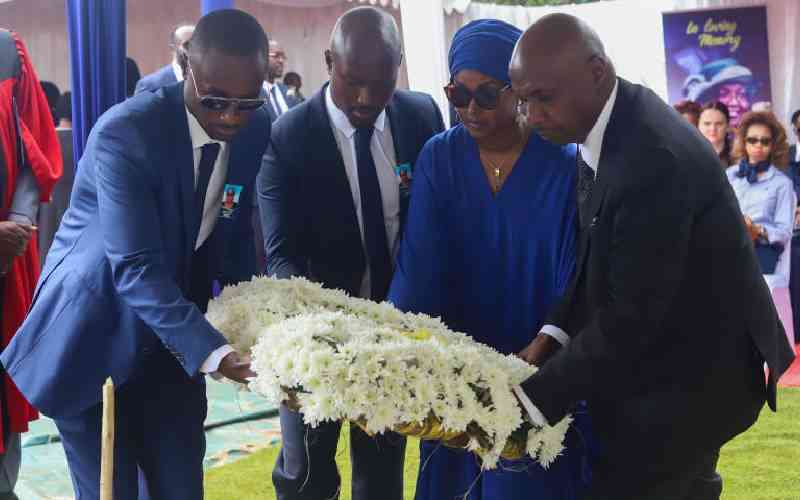Poverty in Africa is man-made, goes the cliché. What’s more, this poverty is attributed to the choices the people have made over time. I couldn’t agree more.
When in 2001, The Economist (a respectable newspaper) called Africa “the hopeless continent” it was resoundingly berated. Many saw The Economist as adopting that cold condescending attitude common among Western diplomats in African cities in the 1990s.
At the time, The Economist said half of Africa’s 600 million people lived on less than 65 US cents a day. The prospects couldn’t have been bleak for Africa. Fast forward to 2012; Africa Rising was one of The Economist’s headlines.
The dim prospects forecast earlier were glowing; thanks to a growing population (1 billion), the democracy wave sweeping through the continent aided by technology was installing amiable, better educated and more liberal leaders; a young educated and exposed populace was growing impatient with the ruling elite and an infrastructural investment fuelled by Chinese invasion ensured that Africa’s per capita growth was galloping at 2.8 per cent compared to 0.6 per cent in 1990s.
Everything was looking up for Africa.
Come 2015 and the story has changed. It is back to the past; nearly half the 1 billion people cannot afford three square meals a day.
Cynicism is taking over from the great optimism. All over Africa, the people are still hoping for a new Messiah. Yesteryear saviors have metamorphosed into the worst forms oppressors. They and their cronies are pillaging and stealing left, right and centre.
So despite the huge deposits of oil and mineral discoveries, the caricature of Africa as a place of dire hopelessness; of war and disease is taking shape, once again. Images of people taking refugee from conflict and heartbreaking footages of young men drowning in the high seas as they cross into Europe are an indictment of misuse of Africa’s riches. It is not benefitting its own people.
There is war in Burundi, the DRC and Somalia is not getting any better. So though chronic diseases are rare on the continent and trade barriers have collapsed and most Africans are relatively freer, the odds remains stacked against the people. But who are the culprits making the African people so poor and desperate?
The modern Africa is beset not by war or hunger, but by a perverted form of democracy. In fact, nobody is stealing elections. The currency is rule by “tyranny of numbers” where sham elections pass off as an indication of democracy. In most of these places, the Opposition exists only by name. Often, it has been intimidated and run out of town.
The citizens have been rallied behind the mantra that “it is their turn to eat” by a gaggle of power merchants and brokers keen to self-preserve. The stakes are so high that the motivation to stay in power far much outweighs the nobble ideas of democracy. Hence individuals will switch parties and allegiance to remain in the power network that decides resource allocation which then ensures power is never lost.
Tom Burgis, an investigative journalist working with London’s Financial Times gives a clearer picture of what he termed as Africa’s resource curse. In his book “The Looting Machine: Warlords, Tycoons, Smugglers and the Systematic Theft of Africa’s Wealth review – ‘the raping of a continent’, Tom Burgis lays the blame squarely on unpatriotic African leaders.
Figure this out. In the recently leaked Panama tax documents where apparently the loot by the leaders around the world are kept, it was discovered that a nephew of South African President Jacob Zuma and the son of Ghana’s former president John Agyekum Kufuor had made it to the dubious list. Zuma’s nephew, Clive Khulubuse Zuma apparently stashed away more than $400 million while his 5,600 employees in the mines have gone without pay for six months.
After nine years reporting on Africa for the Financial Times, Mr Burgis in his book exposes how the extractive industries have turned into a hideous looting machine and that the West is guilty of complicity in the raping of a continent.
As he says, corruption does not end at the borders; kleptocratic regimes use avaricious allies to sell their commodities and stash illicit cash. “Its proponents include some of the world’s biggest companies, among them blue-chip multinationals in which, if you live in the West and have a pension, your money is almost certainly invested.”
Even in Kenya, a country without many natural resources compared to other African countries, large multinational corporations and most companies do not remit their taxes as required.
In the first quarter of this year the Kenya Revenue Authority collected Sh75 billion way below the targeted Sh400 billion from taxes. Where did the billions declared in profits by blue chip companies go?
In my childhood, I heard of Africa as the dark continent.
Stay informed. Subscribe to our newsletter
Yet ironically, most of the valuable mineral resources in the world are found in Africa. South Africa, Botswana and Zimbabwe are known for gold and diamond deposits. Other countries have oil in the case of Nigeria and Angola.
The Democratic Republic of Congo has the largest deposits of coltan in the world. Needless to say; the list of blessings Africa enjoys is endless. Yet it is the contradiction of richness existing side by side with dire poverty that is hard to understand.
 The Standard Group Plc is a
multi-media organization with investments in media platforms spanning newspaper
print operations, television, radio broadcasting, digital and online services. The
Standard Group is recognized as a leading multi-media house in Kenya with a key
influence in matters of national and international interest.
The Standard Group Plc is a
multi-media organization with investments in media platforms spanning newspaper
print operations, television, radio broadcasting, digital and online services. The
Standard Group is recognized as a leading multi-media house in Kenya with a key
influence in matters of national and international interest.
 The Standard Group Plc is a
multi-media organization with investments in media platforms spanning newspaper
print operations, television, radio broadcasting, digital and online services. The
Standard Group is recognized as a leading multi-media house in Kenya with a key
influence in matters of national and international interest.
The Standard Group Plc is a
multi-media organization with investments in media platforms spanning newspaper
print operations, television, radio broadcasting, digital and online services. The
Standard Group is recognized as a leading multi-media house in Kenya with a key
influence in matters of national and international interest.








